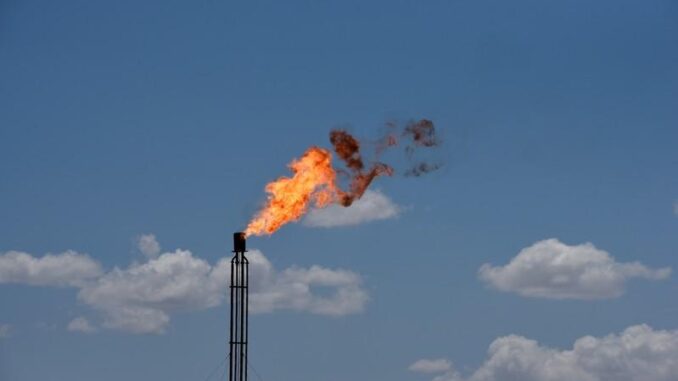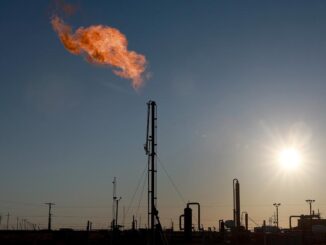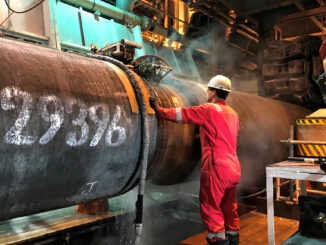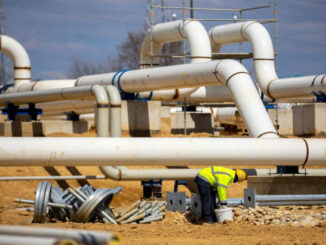
Unprecedented uncertainty in natural gas demand and policies and low levels of investment in new production risk creating fresh energy crises and undermining energy security and climate goals as it would stall the move away from coal, the International Gas Union (IGU) said in a new report this week.
Source: Reuters
Investments in production and liquefaction recovered somewhat last year, rising by 23% annually, but growth additions remain well below the 2013-2014 levels, said the IGU, which represents the global gas industry covering over 90% of the global gas market.
“Despite growth and positive sentiments amidst current market events, significant uncertainty around the LNG market’s future trajectory and the role of gas in the energy transition continues to weigh heavily on, and in some cases delay, investment decisions,” IGU said in the report prepared in cooperation with Italian gas grid operator Snam and research firm Rystad Energy.
“This in turn poses significant challenges for several critical aspects, including supply security, industry development predictability, unmet demand, and pricing, among others,” the report’s authors noted.
The world needs new investments in natural gas production to offset the decline from mature fields and likely growth in gas demand in several regions, the gas union said.
Between 2014 and 2020, investment in gas supply development crashed by 58% and only started to marginally recover in 2021.
Due to maturing assets, global gas supply would decline in the coming decades without additional investments, the IGU said.
Some demand scenarios project declines in natural gas demand sooner than previously assumed. This unprecedented demand uncertainty and the push to accelerate installations of renewable power capacity as many countries look to reduce dependence on foreign fossil fuels create a lot of uncertainty among operators about the future of their potential natural gas assets.
The many uncertainties are holding some investment decisions back, the gas lobby group said.
“The very large difference in levels of anticipated demand across different scenarios – including those that project such deep demand reductions that no new natural gas projects are needed anywhere in the world today – make it very challenging to plan investments, while the increasingly restrictive policy environment has raised the cost of these investments,” the union said.
Renewables and electrification are also currently facing challenges in capital availability, which could delay renewable energy adoption and divert capital away from essential gas developments.
This “would cause major turbulence in energy markets in the current and coming decades,” the IGU noted.
“Hence, there is a need for integrated planning to ensure investment signals are not disconnected from reality, and sufficient capital is available for the investments.”
Europe, which has seen gas demand decline since the start of the energy crisis, is likely to see a lasting loss of demand, analysts and traders say.
However, despite the push to accelerate renewables, Europe still needs natural gas to replace the lost Russian supply, and will need it for years and decades.
Earlier this month, Shell and TotalEnergies signed 27-year deals with QatarEnergy to deliver LNG to the Netherlands and France, respectively, from Qatar’s expanded projects starting in 2026.
Before the Russian invasion of Ukraine, Europe was reluctant to commit to long-term LNG supply deals. But the gas price shock from last year has made clear that gas will be needed even if demand doesn’t return to pre-war levels.
Meanwhile, gas demand in Asia is set to continue growing. If natural gas is affordable, South and Southeast Asia could replace in the future more coal-fired power generation with gas and possibly ensure greater access to energy and an end to blackouts and energy rationing.
The affordability of natural gas, however, will depend on how much new production will come online this decade. In the absence of supportive investment signals, supply will play catch-up with demand, which could lead to new price spikes and shocks.
“Despite the remarkable uncertainty across existing energy transition scenarios, natural gas is expected to remain a significant participant in global energy markets in the coming decades,” the gas union said in its report.
“However, the level of future natural gas supply has been largely left to chance.”
By Tsvetana Paraskova for Oilprice.com



